Your essential guide to every album by The Verve
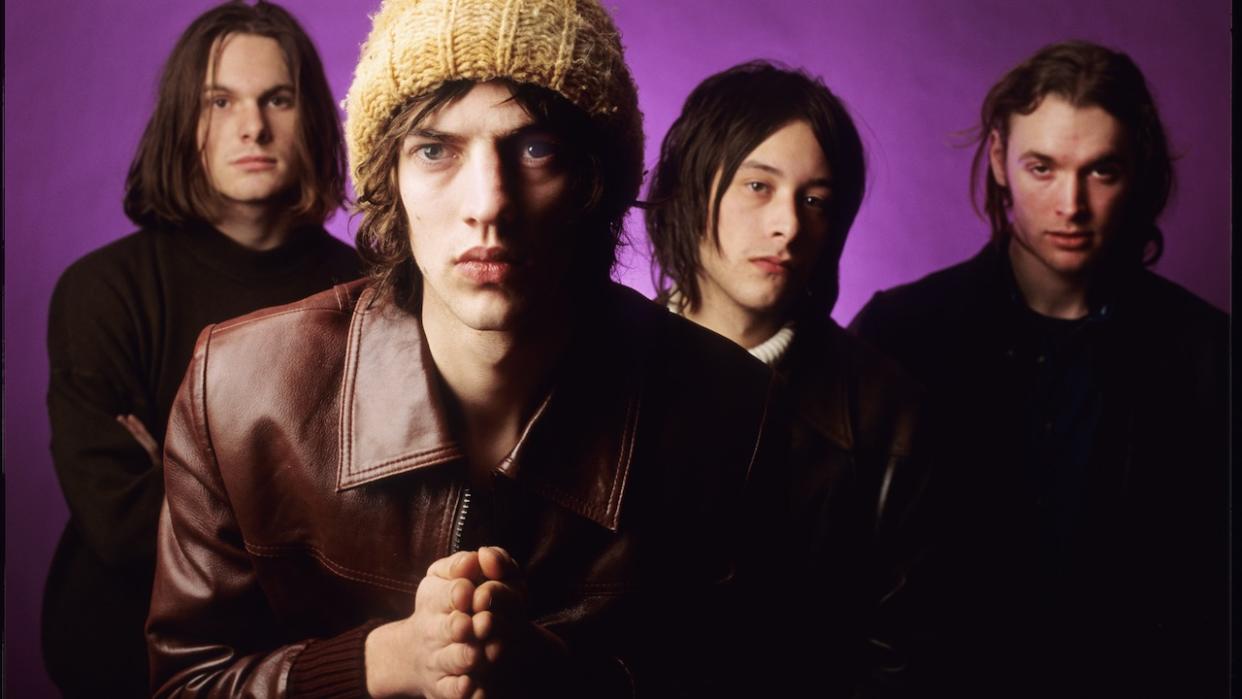
The Verve were many different bands across a stop-start career but the one thing they never were was boring. If you thought Oasis endured a turbulent ride, then wait until you dive into the history of Richard Ashcroft and co. But no matter how dysfunctional it got between the quartet from Wigan – and it got very dysfunctional indeed – it never seemed to seep into their music. From the psychedelic, widescreen sounds of their early days through to the epic indie anthems that made them huge, there was always something serene about The Verve’s songs… until there wasn’t, because they hated each other and split up. Luckily, they left some wonderful music in their wake.

A Storm In Heaven (1993)
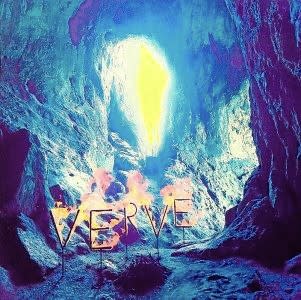
If your only encounter with The Verve is via the big hits from Urban Hymns, then you’ll be surprised about how hard they are to pin down on this dreamy, expansive debut. The vast sonics and reverb-drenched, effect-heavy guitars suggest a shoegazing band, but where those groups often hid inside their cavernous sound, The Verve contained a charismatic, shamanic frontman in Richard Ashcroft – a man the music press dubbed Mad Richard.
Recorded at Cornwall’s Sawmills Studios with Stone Roses/Radiohead producer John Leckie, A Storm In Heaven is a psychedelic trip of a record that, true to its title, often sounds like it’s out to cause a celestial ruckus.
A Northern Soul (1995)
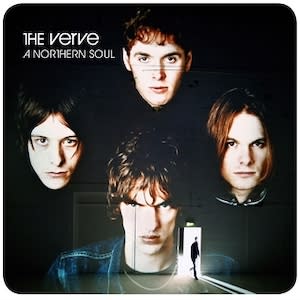
It might have been commercially eclipsed by Urban Hymns but A Northern Soul is the sound of The Verve at their creative, imaginative best. That’s probably because Ashcroft was yet to go full egomaniac and seize sole control, the tug of war between band members trying to pull the sound in different directions resulting in a record of thrillingly dynamic shapeshifting.
It’s a record that sways from explosive, epic rock ’n’ roll (the first two tracks match any opening salvo of the '90s) to poignant balladeering (in On Your Own and History, Ashcroft was beginning to tap into his knack for soulful, singalong anthems) alongside experimental rock grooves such as Life’s An Ocean and So It Goes, numbers that highlight just what a hypnotic band The Verve could be when they locked in together. Away from the music, though, the band were increasingly operating on different planes, guitarist Nick McCabe growing so exasperated with his bandmates’ drug-taking and wild behaviour that he’d go into the studio to work on his parts early in the day, presumably when the rest of them were asleep.
Considering the increasing disarray, that they emerged not just to get an album finished but for it to be such a masterful artistic statement is testament to the alchemy at work here. But that wasn’t enough: A Northern Soul was released in July 1995 but within months, The Verve had split up. For now, it was game over.
Urban Hymns (1997)
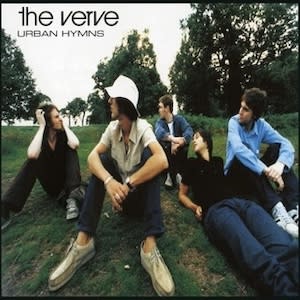
The record that became The Verve’s biggest did not come easily. For a start, there was no band. There were 18 months between McCabe being fired from The Verve and Ashcroft calling the guitarist up and asking him to rejoin. The remaining members – Ashcroft, bassist Simon Jones and drummer Pete Salisbury – had reunited just weeks after the initial split with a new guitarist, old schoolfriend Simon Tong, to begin working on new material. The songs had been pouring out of Ashcroft – Britpop was in full flow, Oasis were huge and The Verve frontman was desperate to seize his chance.
But not so desperate that he’d immediately perform a volte-face and call up the man for whom they had staged a pseudo split just so they could crack on without him. Instead, Ashcroft asked around. He asked ex-Stone Roses guitarist John Squire if he was interested in joining. Squire said no. Then he asked ex-Suede man Bernard Butler, who was keen to give it a go. They got together and played in a room. It went well. But Butler was also a songwriter and Ashcroft was determined to be The Verve’s powermonger. He went off the idea. Demos were made and discarded, with John Leckie, and then Killing Joke’s Youth. The songs were there, soulful acoustic singalongs with big hooks and powerful yearning, but something was missing. The Verve were not The Verve without Nick McCabe’s delicate, magisterial guitar parts.
An awkward phonecall from Ashcroft later, McCabe was back in. Thanks to Simon Jones, the guitarist had been kept in the loop on their progress, the bassist playing him all the demos they’d recorded in his absence when he was crashing over one night. He immediately recognised the spaces where his guitar could slide in and elevate the songs. The band got down to work on completing the record with engineer Chris Potter, resurrecting A Northern Soul offcuts The Rolling People and Come On to add some rock’n’roll bite alongside the stirring mid-tempo cuts, harking back to the jammed-out approach of their early days by writing Weeping Willow and Catching The Butterfly together in the studio.
Released in September 1997, Urban Hymns was preceded by the era-defining comeback single Bitter Sweet Symphony. Laid down in the Youth sessions with McCabe adding some guitar flourishes later on, it remains an astounding leap forward, pairing a sample taken from an orchestral version of The Rolling Stones’ The Last Time with a percussive thump and sumptuous atmospherics, Ashcroft’s vocal capturing him at his most impassioned and imperial. As with most things in The Verve, it saw a good thing turn bad: the group never saw a penny from the song until 2019, ex-Stones manager Allen Klein putting his foot down and taking 100% of the royalties.
The dispute couldn’t stop Urban Hymns’ momentum, though. It went to number one in the UK charts and sold over ten million copies, becoming The Verve’s crowning achievement, which is why there are more words on it here than any of their other records. And how did The Verve follow-up all this success? You guessed it. They had a big fight, Nick McCabe left again and they split up. Again.
Forth (2008)
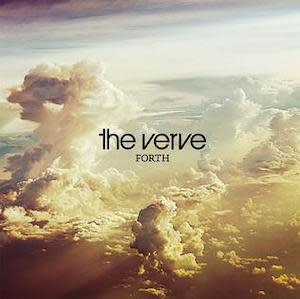
From the outside, the Verve’s mid-00s reunion appeared to be a resounding success. Sell-out shows, a Glastonbury headline performance, an appearance at Coachella, and a Chris Potter-produced fourth album that holds up, recapturing the space-rock swagger of their early work. But it didn’t take long for it all to turn toxic.
Nick McCabe claims that Ashcroft had begun to lose interest in the reunited group during recording sessions and that the band had already returned to the almighty rows that had blown a hole in their original career on the first leg of comeback shows. You look back over the patterns and realise, This is just what The Verve do. Or did. Forth didn’t make a huge impact – the world had moved on – but it’s a solid and sometimes thrilling record, a pleasing mix of indie anthems and rhythmic interplay, certainly better than anything Ashcroft has managed in his solo career for over two decades. If it’s the final word in The Verve, it’s decent enough.
